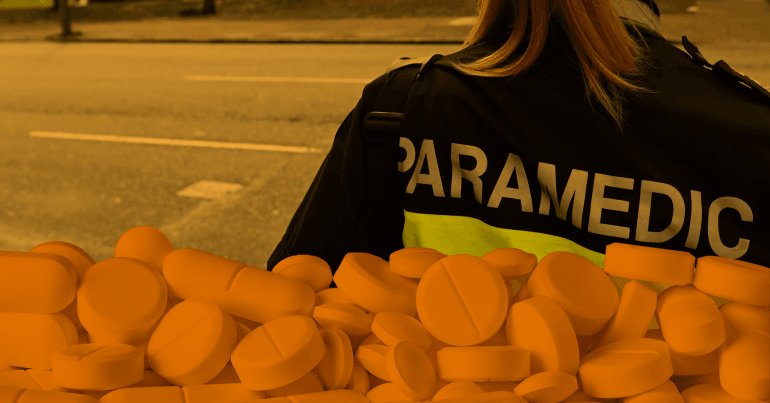 Dan Gawthrop | CUPE Communications
Dan Gawthrop | CUPE Communications
CUPE 873 member Kelly Budway loves her job as an ambulance paramedic. Since being trained in emergency medical response and joining the BC Ambulance Service in 2011 after more than a decade as a flight attendant, she has never looked back.
“Working in the city as a full-time paramedic, I am challenged every day. Rarely does a day go by that I don’t learn something new. I thrive on that,” says Budway, CUPE 873’s regional vice-president for Metro Vancouver.
One challenge has proven more difficult since 2016: the epidemic of drug overdoses Budway has witnessed on her regular assignment in Vancouver’s Downtown Eastside. For ambulance paramedics on the front lines of B.C.’s opioid crisis, the city’s most impoverished neighbourhood often seems like a war zone. With so many people in crisis and multiple casualties every day, post-traumatic stress disorder (PTSD) has become all too common for first responders numbed by constant exposure to human tragedy.
“There are still people among us who don’t feel like they can talk about it,” says Budway. “They’re hard, and it’s like Fight Club: ‘What happens in Fight Club stays in Fight Club.’ And everybody’s different in what flicks that switch in your head to say: ‘This is going to affect me emotionally or mentally.’”
Dealing with trauma is a regular part of any first responder’s job, and PTSD is common among police officers, fire fighters and ambulance paramedics alike. But the problem among paramedics responding to the opioid crisis could be partly mitigated with more resources, argues Budway.
“We need more ambulances and more paramedics across the province because sadly, in the outlying areas, they’re all being pulled in when we’re short in the city,” she says, noting there are too many ambulances left unstaffed and too many paramedics going out as solo responders.
Budway says there also needs to be more mental health support for paramedics. While grateful for her local’s critical incidents stress peer support team—at any point, she can pick up the phone and connect with another ambulance paramedic who can either talk her through her stress issues or, in more extreme cases, refer her to a psychologist—it’s simply not enough.
“I could respond to six overdoses in a day, and it could be the seventh one that got to me. Or, I could continue doing these overdose calls for the rest of my career, but it’s the Alzheimer’s patient that really gets to me. Or the child abuse call. There’s no knowing that, ‘Yes, this is going to affect me’ until it happens.”





